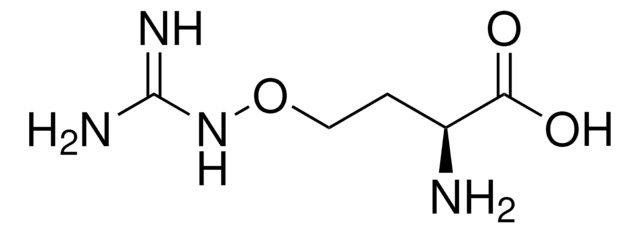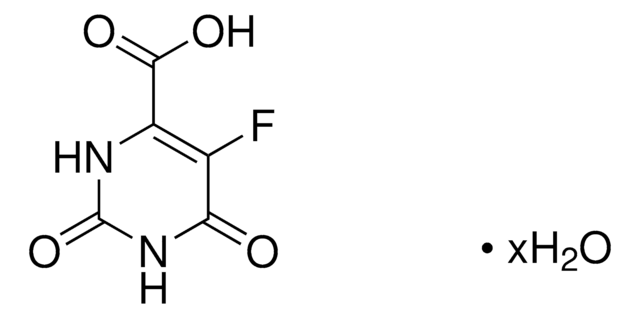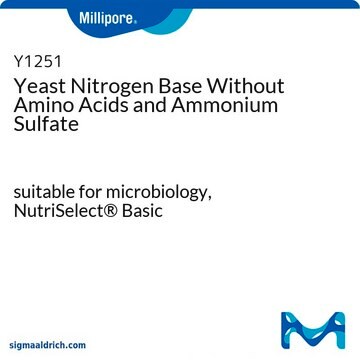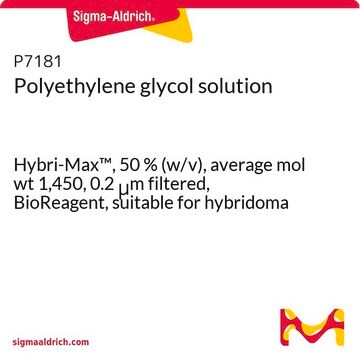C9758
L-Canavanine sulfate salt
≥99% (TLC), powder
Synonym(s):
L-α-Amino-γ-(guanidinooxy)butyric acid sulfate salt
About This Item
Recommended Products
biological source
plant seeds (Jack bean )
Quality Level
Assay
≥99% (TLC)
form
powder
color
white
mp
160-165 °C (dec.)
solubility
H2O: 100 mg/mL
storage temp.
2-8°C
SMILES string
OS(O)(=O)=O.N[C@@H](CCONC(N)=N)C(O)=O
InChI
1S/C5H12N4O3.H2O4S/c6-3(4(10)11)1-2-12-9-5(7)8;1-5(2,3)4/h3H,1-2,6H2,(H,10,11)(H4,7,8,9);(H2,1,2,3,4)/t3-;/m0./s1
InChI key
MVIPJKVMOKFIEV-DFWYDOINSA-N
Gene Information
human ... NOS2(4843)
Looking for similar products? Visit Product Comparison Guide
General description
Application
- as a translation inhibitor in yeast translation studies
- as a component of synthetic complete (SC) drop-out medium for screening yeast
- for screening Saccharomyces cerevisiae in canavanine mutation frequency assay
Biochem/physiol Actions
Storage Class Code
11 - Combustible Solids
WGK
WGK 3
Flash Point(F)
Not applicable
Flash Point(C)
Not applicable
Personal Protective Equipment
Choose from one of the most recent versions:
Certificates of Analysis (COA)
Don't see the Right Version?
If you require a particular version, you can look up a specific certificate by the Lot or Batch number.
Already Own This Product?
Find documentation for the products that you have recently purchased in the Document Library.
Customers Also Viewed
Our team of scientists has experience in all areas of research including Life Science, Material Science, Chemical Synthesis, Chromatography, Analytical and many others.
Contact Technical Service
















